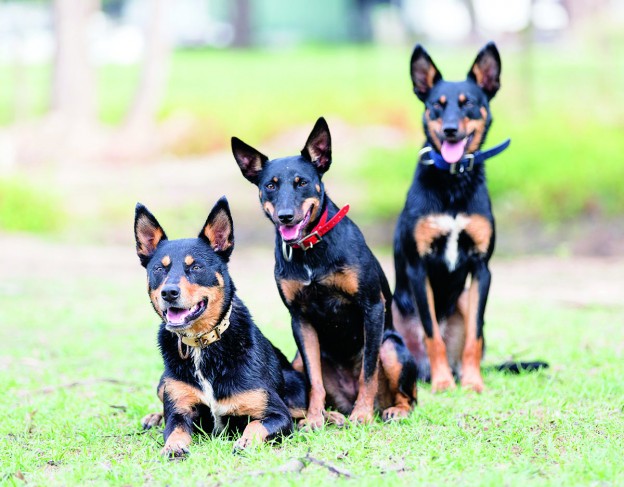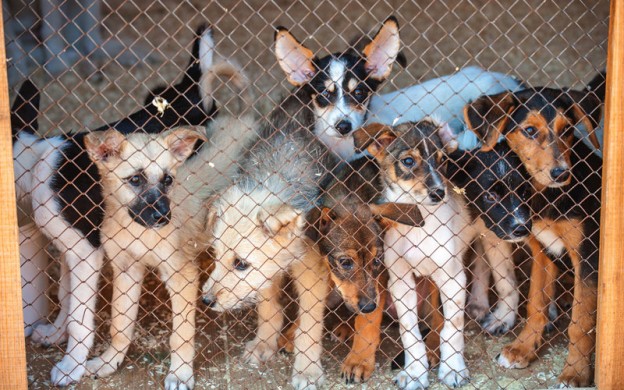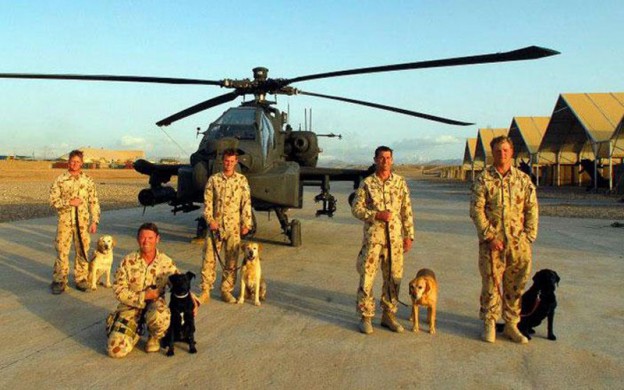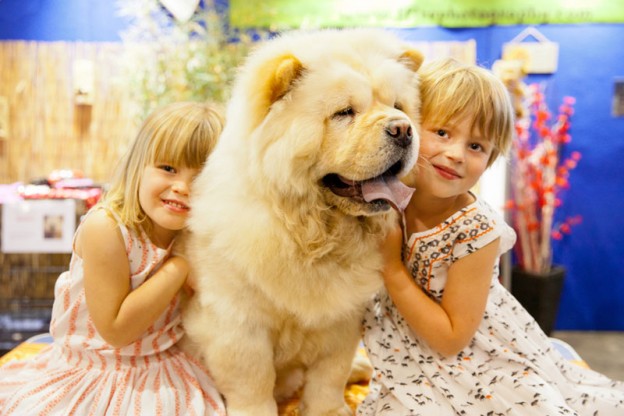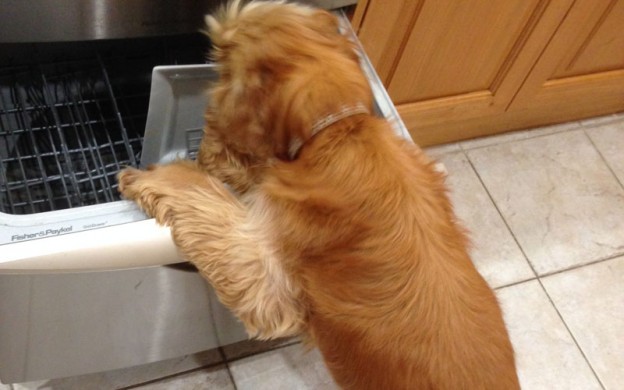The relationship many African tribes have with their dogs is different to that of the Western world. Lorraine Chittock tells of the dogs and owners she has come across in her journey through Kenya.
In the dry desert village of Maikona in Northern Kenya, dogs don’t wear collars or walk around on the end of a lead. Sit, stand, down and fetch are commands theyve never heard. No signs ban their entry and speeding cars don’t threaten their lives. This village is one giant dog park. Or is it?
My dog, named Dog, sat next to me outside our hosts house, a three-day journey from where she and I once lived in the capital of Nairobi. Dog gently licked my ear. The hosts four-year-old daughter opened her eyes wide with horror. Never before had she seen such a thing. Though almost every household from the Gabbra tribe has a dog, the relationships they have with their animals is sometimes quite different to those in the West.
Not once during my stay did I see the black-and-white pooch next door fed or watered. When one of the children in the family gave him affection, the little boy was scolded. Like dogs in many villages throughout the world, he and other community canines are tossed scraps for food. If there are none, they scavenge. With this diet, its inevitable a dog will pick up diseases. In an area where hospitals are scarce, the mother had some justifications in her concerns. Despite her hands-off approach, the dog appeared in good health and someone cared enough to give him a name Jake.
Natural selection
Dog and I meandered along village paths, staying around the periphery of the village to keep clear of packs that perceived us as intruders. Dogs slept in front of houses, nursed their young and mated. Around the neck of a black dog was hung a satchel. Hers was the only collar I saw in the village of 3000 people. When I asked why, the owners responded, Shes not well. So we put dawa or medicinal herbs around her neck to make her better.
Nature’s rules are harsh; only the fittest survive. But many generations of dogs mated by natural selection have created animals without the diseases or hereditary problems that debilitate those bred to be fluffier, cuter or friendlier.
As the sun climbed, I watched women going about their daily business dressed in coloured cloths wrapped ingeniously around their bodies. Four dogs trailed closely behind one dressed in brilliant red. I followed Waatu into her shop. Her dogs stayed outside. Dog stayed across the street, wary of the pack. Only a few items lined the shelves – maize, sugar, tea, soap and other assorted staples. Two children slept on empty sacking that read Made in Pakistan.
Other people have dogs in Maikona, I said to Waatu, but their dogs just guard the homes. Why do your dogs follow you?
They know I care for them, she replied, adjusting folds of fabric flowing over her fertility-goddess hips. They get lonely without me. And I get lonely without them. Also, I try to treat them good and give them special food. And meat sometimes. Other people treat their dogs meanly. Dogs don’t like that.
I explain that where I came from, its normal for people to touch and stroke their dogs. Have you ever seen this in your village? I asked. No, never. But me, I touch my dogs. It depends on how people think upstairs.
A few minutes later, while breast-feeding her youngest child, one dog strayed too close for her comfort. She threw a rock in its direction. I cringed. Did she really care for her animals? After finishing nursing, she swatted her oldest daughter with a cane as I had seen other mothers do in the village.
What do you do about rabies, I asked.
If we have a case of rabies, all the dogs in the village have to be killed. And now I have a question for you, she said. What can I do about dudus, the insects that crawl on my dogs and make them scratch?
I wondered how to reply. The only substance that really worked cost half a months profits from her store. I told her eucalyptus leaves help if placed where the dog sleeps. But there are no eucalyptus trees in Maikona. Shes disappointed.
A rangers dogs
En route back to Nairobi in the town of Marsabit, a massive man swaggered into the compound where I stayed. Two ruffian dogs stood next to him, one on each side. Do they work with you? I asked, noting his rangers uniform, accented by a green bush hat that sat jauntily on a head two feet higher than mine.
Yes. This is Simba and that one is Choi. Lion and Leopard. After chatting a few minutes, I told him I had to go to the transportation depot. I’m headed that way, he said, throwing my duffle bag over his shoulder.
While waiting for the truck to take us back to Nairobi, I offered to buy the leader of our pack tea. Together we walked into a small restaurant. Dog settled demurely underneath the table. Simba and Choi stopped at the entrance and flopped down in the dust.
Your dog followed you inside. Mine wait outside, the man noted, amicably accepting my failings as a good dog owner. The man serving us didnt seem to mind rules are usually relaxed in rural areas.
When you’re at home, I asked nonchalantly, do you lock your dogs up during the day? In some areas of Kenya, people keep their dogs in wooden enclosures during the day, in the commonly held belief that a dog confined during daylight hours will be kali or aggressive when let out at night to guard.
Lock them up? he asked, laughing heartily. They’re not going anywhere. I have great dogs, he stated, before telling me stories of his eight children.
But what about your neighbors? Do they? Some of them. Their dogs aren’t as loyal as mine.
But they would be if treated well.
Yes, that is commonsense. Some people are stupid with animals, he said, and launched into a story about his wifes family.
What do your dogs eat? I asked, struggling to hang onto our common animal bond. I buy feed that comes in a sack and mix it with water, he replied, before describing his new plot of land.
Though this man walked with two animals whod defend him to the death, he viewed his dogs merely as appendages. He took care of his dogs, and his dogs took care of him.
Dogs for protection
You want to bring the mbwa on board? the tout shouted, as Dog and I transferred to a small bus close to Nairobi. Thatll be one thousand shillings. A joker. Music blared while the driver manoeuvered the vehicle as if in the Paris to Dakar rally. More passengers piled in and vast skies stretching from horizon to horizon became more polluted. Dusk turned to darkness, the mood shifted and bright city lights drowned out the African stars.
Because no effective emergency services exist in Nairobi, everyone provides for their own protection. Metal bars cover the windows and doors of buildings, and security companies abound, providing a crew of professional guards armed with truncheons who wait in trucks fortified with heavy metal bars across the windscreen. Cynics say a corrupt police force combined with a hyped security situation is a way of getting stray dogs off the streets and into gardens to guard.
But dogs in Nairobi are loved, too. The Kenya Society for the Prevention of Cruelty to Animals (KSPCA) never has less than 100 dogs in its care because of their no-kill policy. To keep unwanted puppies off the streets, KSPCA concentrates on spaying females, even though the operation is difficult and expensive. Entirely self-funded, the KSPCA does regular fundraisers, such as the Shaggy Dog Show and the Goat Derby, and celebrities are shown on posters with their pets. Additional money comes in through private donations and grants.
The dualities of love and harshness are strongly pronounced in Africa. I recall the village of small huts and dogs who are direct descendants of the canines who sat by our fires thousands of years ago. Compared to house hounds in the West, their meals are erratic, they lack human affection and regular health care. But, these living vestiges of the past are not confined, nor do they wait all day in isolation for their people to return from work. They’re free to cavort and go about their lives with friends of their own choice, all day, every day. If I were a dog, I know what life Id choose. Will we ever know for certain a dogs opinion.



